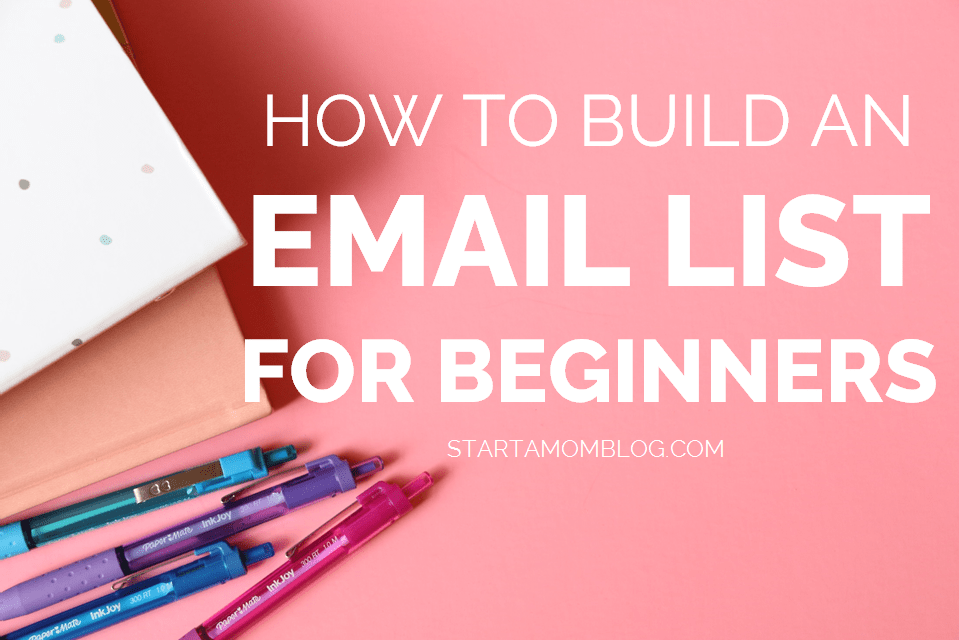20 Great Facts For Deciding On Email List Sellers
Wiki Article
What Are The Factors I Should Consider When Purchasing An Email List For Cpa?
When you purchase a CPA (Certified Public Accountant) email list, you must evaluate several key factors to ensure the list is high-quality, compliant with the legal requirements, and relevant to your marketing goals. What you should take into consideration: 1. Data Accuracy and Quality
Source of information: Examine the source of the list. The most reliable providers typically collect data from reliable sources such as professional directories, trade associations or databases. Beware of lists made by scraping, or unreliable sources. They may contain outdated data.
Verification Process: Check that the email address list was recently verified. This can help lower bounce rate and ensure you are able to reach active, valid email addresses. Ask how often this list is cleaned and updated, since CPAs may frequently change firms or jobs.
Segmentation and Filters Segmentation & Filters CPA list that's good should contain options for segmentation based on location (city state, country or city) and specialization in specific industries (e.g. auditing, taxation and financial planning) as well as the number of years of experience, firm size, etc. Your ads are more effective if you use targeted targeting using the above-mentioned factors.
2. Legal Regulations
Data Privacy Laws â Ensure that your email lists comply with law on data protection, such as the General Data Protection Regulation, the California Consumer Privacy Act or any other local rules. Lists must only contain legal emails.
Compliance with the CANSPAM Act To ensure compliance with the CANSPAM act that regulates commercial email It is essential that your email list conforms to the CANSPAM Act. Included in this is the provision of opt-out mechanisms and the use of untrue content or subject lines. Infractions could result in penalties or legal problems.
Opt-In Consent: Ensure that email addresses have been obtained via opt-in consent where recipients have agreed to receive email from third-party marketers. This decreases the chance of spam complaints while increasing engagement.
3. Provider Reputation
The credibility of the provider should be thoroughly researched. Check out reviews, testimonials as well as case studies to see what other customers think. Established providers tend to have more accurate data.
Transparency. The provider should make it clear when and how the data is changed. If the service provider isn't able to clearly explain their method that should trigger flags of red.
Customer support is crucial It is essential to have reliable customer support if your campaign needs assistance with customising the list, troubleshooting problems, or understanding the rules of compliance. A good support system can make your life easier and save you time throughout the campaign.
4. Cost and Return on Investment
Pricing Models. Providers provide a variety of pricing models. Some charge per contact; others charge monthly fees or subscriptions. Check out the cost and the return you can expect, while also balancing cost with quality of the list.
Ask about refund policies. In the case of a large number incorrect or inactive email addresses, a majority of service companies offer a replacement or refund policy. A guarantee could give you peace of mind.
Don't solely focus on cost. If the list isn't of good quality, a less expensive one may look appealing but could result in low engagement rates or a high bounce rate. Choose lists that are worth it in terms of data precision and segmentation.
5. Data Use and Ownership
Buy the list once or buy it multiple times. Costs for databases that are solely used could be lower, but you'll have more flexibility over the long term if you buy the data.
Exclusive vs. Shared Lists - Find out whether you are the sole buyer of an email list, or when multiple buyers share it. Lists shared with others could cause exhaustion of the audience if they've received a lot of marketing emails.
6. Data Format and Integration
CRM Compatibility. Check that the list you send out is in a format that works with the CRM software you are using or to promote email marketing, such as CSV. It permits easy importation and management of your data.
User-Friendliness: Consider how easy it is to segment and manage the data once it has been integrated into your system. A well-organized database can enhance targeting and personalization.
7. Ethical Concerns
Relevance of Content CPAs are highly-skilled professionals, so it's important to send relevant, value-driven content. Avoid sending irrelevant messages that can damage the reputation of your company or cause spam complaints to rise.
Be mindful of how often you send out emails to people who are on your list. Over-communication might lead to unsubscribes from your list, or even spam complaints. Both of these can have a negative impact on the reputation of your sender.
Also, you can read our conclusion.
To ensure that your investment is profitable, you should consider the quality of your data and legal compliance when buying an email list from a CPA supplier. Segmentation, targeting, and ethical practices can increase the engagement of your customers, their ROI and image of the brand. Take a look at the best cpa email list for website examples.

When Buying An Oil Industry-Related Email List, There Are 10 Essential Aspects To Remember.
It is essential to take into account several factors prior to purchasing an email list in the gasoline and oil industry. This will ensure that the list contains high-quality information, is legally compliant, and has a high-quality target. Here are ten important factors to consider.
1. Relevance for target audiences
Industry Focus: Make sure the list of email addresses is targeted specifically to the oil and gas sector. Professionals from the industry of oil and gas, including geologists, engineers and operations managers, as well as decision-makers as well as upstream, midstream and downstream operators should be included on a well-segmented mailing lists.
Look for the appropriate key decision-makers (executives and managers, engineers, etc.). within the organizations you want to focus on.
2. List source and vendor Reputation
Reputable providers: Only buy from reputable and trusted email list providers that follow the most effective practices for collecting data. Beware of sources that have a questionable source, as they may result in poor quality data or even legal issues.
Data Quality: Reviews or testimonials are used to assess the quality and reliability of the list.
3. Data Accuracy & Freshness
Data Age: This list should contain the most current contact details. The personnel of oil and gas companies is always changing, which could cause outdated contact details.
Verification Process - Ensure that the vendor is consistently reviewing and updating their contact list to get rid of any invalid or unresponsive names.
4. Conformity to Regulations
Legal Compliance: Make sure that the list conforms to local and international regulations, such as the GDPR and CAN-SPAM which regulate the collection and use of personal information. Failure to comply could result in legal penalties or risks.
Opt-in Process: Verify that those email addresses on the list have been collected with the proper consent, which means they've signed up to receive messages.
5. Segmentation and Customization
Custom segmentation. Quality list providers will offer the option of segmenting on the basis of specific elements such as the location, the role of the company, the size of the company or subsector in oil & gas.
Custom Filters. Based on the goals of your campaign be sure the list is customizable in accordance with criteria such as geography, business size, or other special needs.
6. Rate of Deliverability
High Deliverability: A high-quality email list should have high rates of deliverability (typically 95% or greater). Lists that aren't of high quality usually have high bounce rate, which could harm the reputation of your sender and their email marketing efforts.
Test and Metrics - Ask for metrics to gauge the results of your list.
7. Volume vs. Qualitative
Quality over quantity: Be sure that the list is not only big but also targeted and precise. A smaller but quality mailing list is more effective than one that's large and general.
Engagement Metrics: Focus on engagement rates rather than the amount of contacts. Affluent audiences will be more likely to react to your ads.
8. Cost Structure and Pricing
Transparent Pricing is transparent. Learn the pricing structure. Be cautious about lists that seem to be extremely cheap. They might not have any merit or value.
Return on Investment (ROI) You should consider the possibility of a return on investment by comparing the list price with the expected conversion rates. Paying a premium to get a list that is highly specific can save you money over the course of time.
9. Privacy and security of the data
Data Protection: Verify to determine if the company uses security methods that are strong and reliable. The list provider must ensure that all personal data is secured from access by unauthorized persons.
Privacy: Make sure that the company does not share or sell your information, particularly if your business requires confidentiality and discretion.
10. Customer Support and After Sales Service
If you are having issues or require help in implementing The vendor should offer regular customer support.
List Replacement Warranty: A reputable provider will replace or refund the list if there are issues (e.g. wrong information or poor delivery).
Take note of these aspects when buying an email database to support your oil and gas-related business. This will ensure that it is efficient, reliable, in line, and fulfills all your objectives. See the top for website tips.
